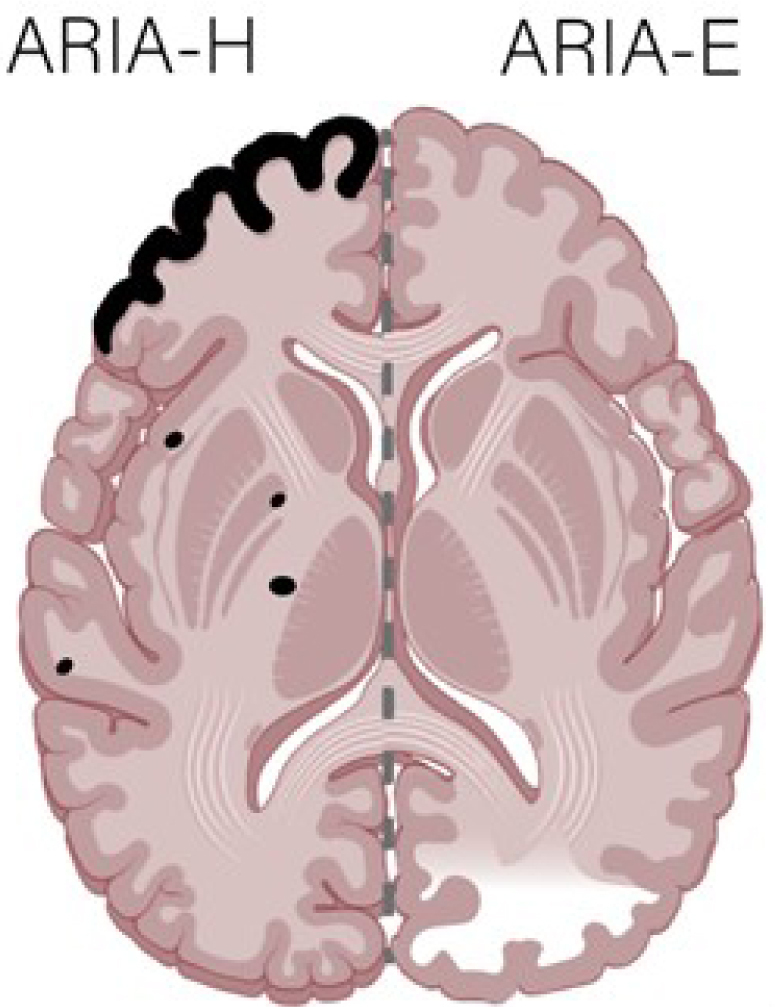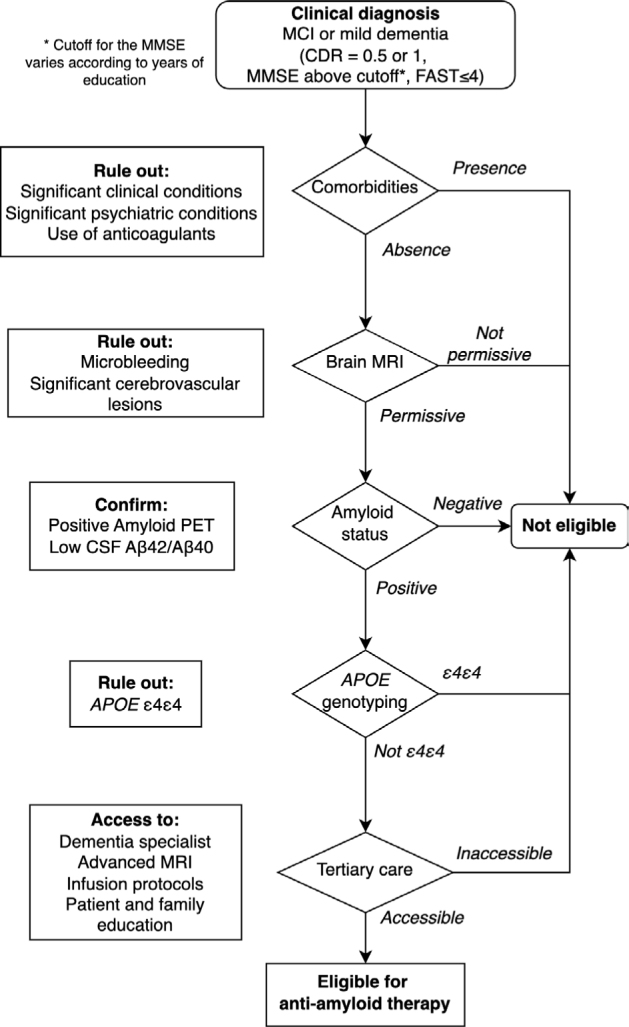Use of anti-amyloid therapies for Alzheimer's disease in Brazil: a position paper from the Scientific Department of Cognitive Neurology and Aging of the Brazilian Academy of Neurology.
Q3 Medicine
Dementia e Neuropsychologia
Pub Date : 2024-11-11
eCollection Date: 2024-01-01
DOI:10.1590/1980-5764-DN-2024-C002
引用次数: 0
Abstract
Novel therapies for Alzheimer's disease, particularly anti-amyloid drugs like lecanemab and donanemab, have shown modest clinical benefits but also significant risks. The present paper highlights the challenges of access to diagnosis, cost-effectiveness, safety, and the need for more representation of diverse populations in clinical trials. Recommendations include careful patient selection, risk-benefit analysis, and the importance of proven amyloid pathology for treatment. Future work involves further research on anti-amyloid therapies in Brazil and the development of more effective treatments for Alzheimer's disease.


巴西使用抗淀粉样蛋白疗法治疗阿尔茨海默病:巴西神经病学学会认知神经学和老龄化科学部的立场文件。
阿尔茨海默病的新型疗法,尤其是抗淀粉样蛋白药物,如莱卡尼单抗和多那尼单抗,已显示出一定的临床疗效,但也存在很大的风险。本文强调了获得诊断、成本效益、安全性方面的挑战,以及在临床试验中增加不同人群代表性的必要性。本文提出的建议包括谨慎选择患者、风险效益分析以及证实淀粉样蛋白病理学对治疗的重要性。未来的工作包括进一步研究巴西的抗淀粉样蛋白疗法,以及开发更有效的阿尔茨海默病治疗方法。
本文章由计算机程序翻译,如有差异,请以英文原文为准。
求助全文
约1分钟内获得全文
求助全文
来源期刊

Dementia e Neuropsychologia
Medicine-Geriatrics and Gerontology
CiteScore
2.20
自引率
0.00%
发文量
58
审稿时长
8 weeks
期刊介绍:
Dementia top Neuropsychologia the official scientific journal of the Cognitive Neurology and Ageing Department of the Brazilian Academy of Neurology and of the Brazilian Association of Geriatric Neuropsychiatry, is published by the "Associação Neurologia Cognitiva e do Comportamento", a nonprofit Brazilian association. Regularly published on March, June, September, and December since 2007.
 求助内容:
求助内容: 应助结果提醒方式:
应助结果提醒方式:


